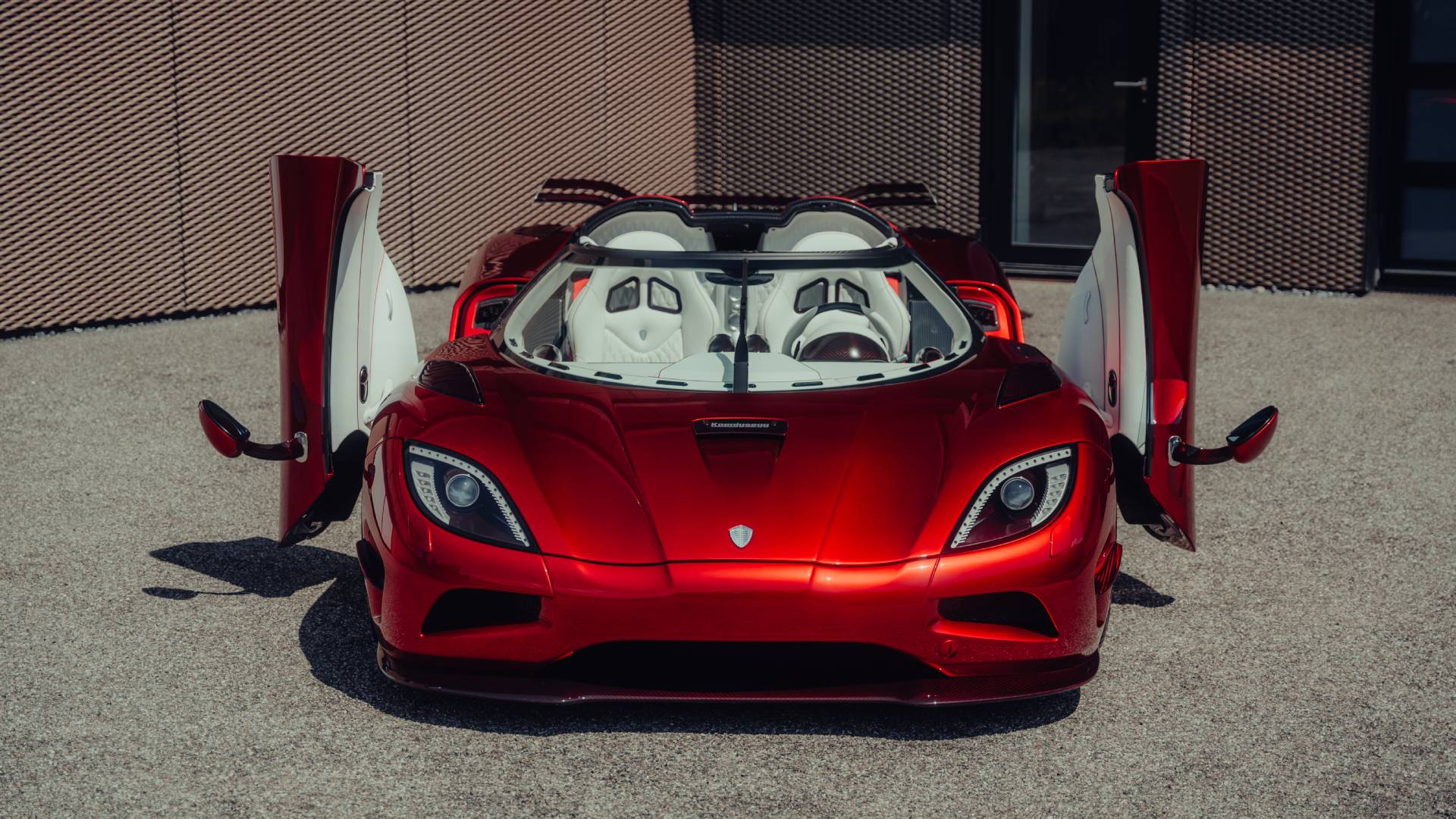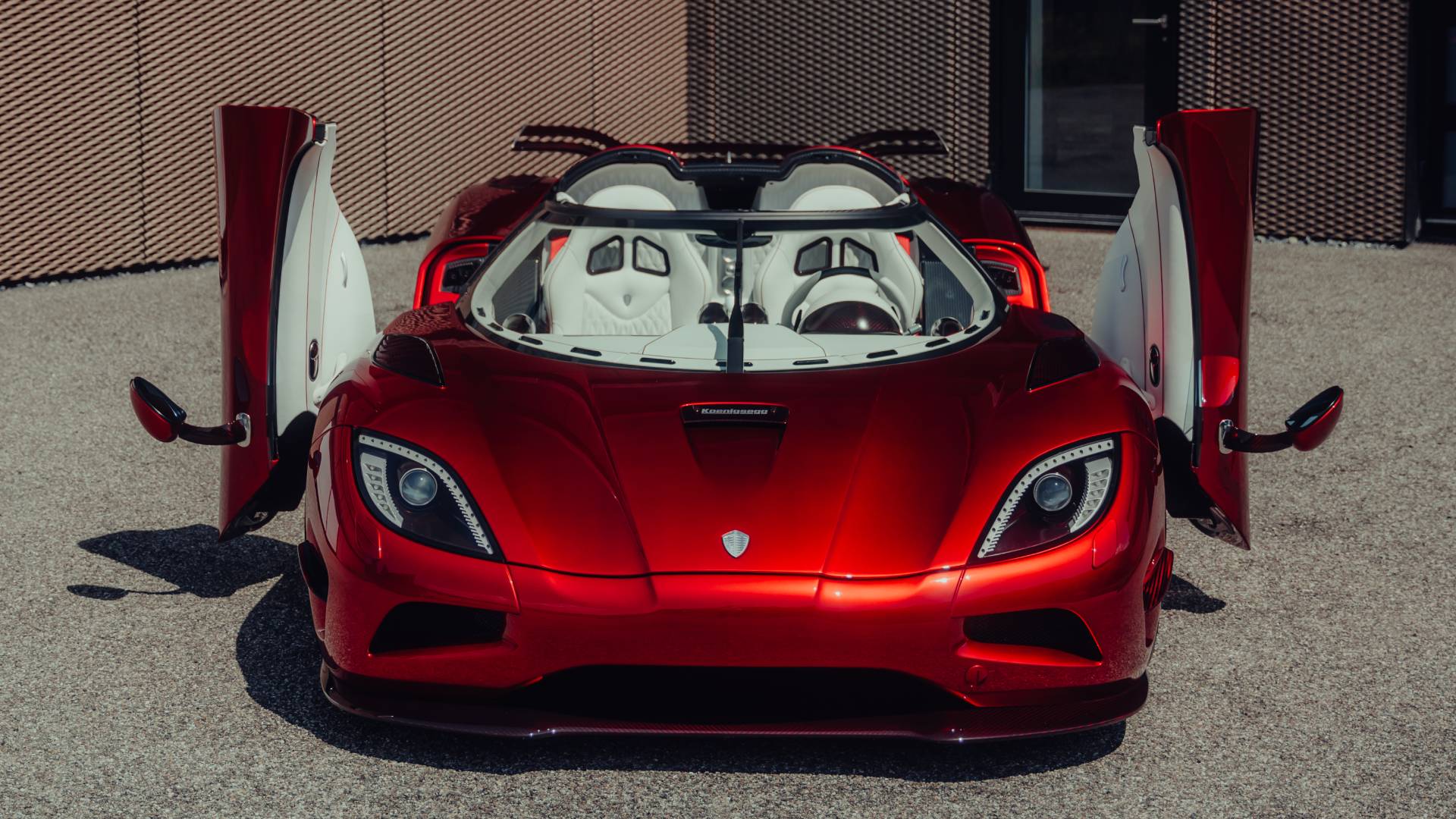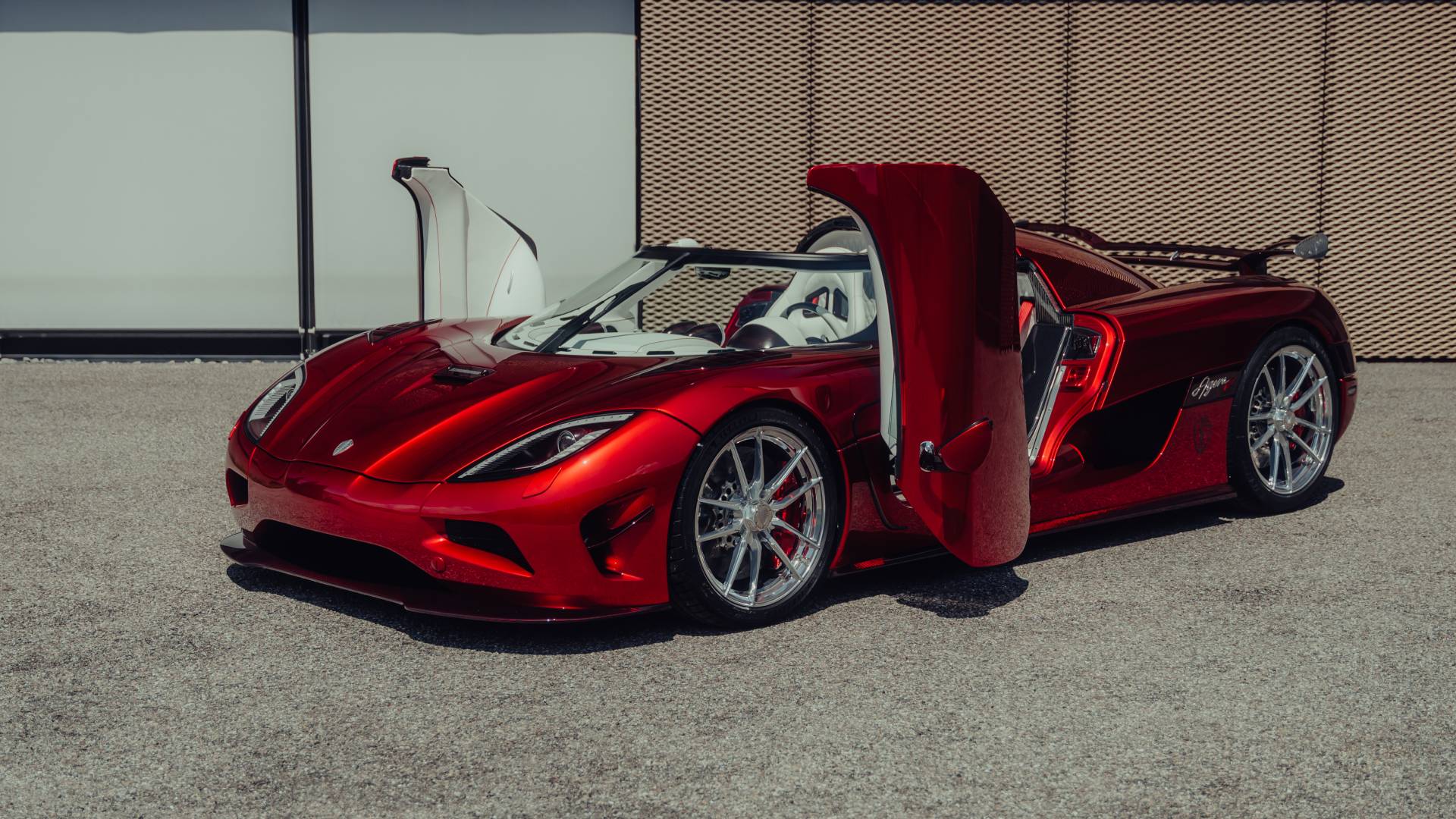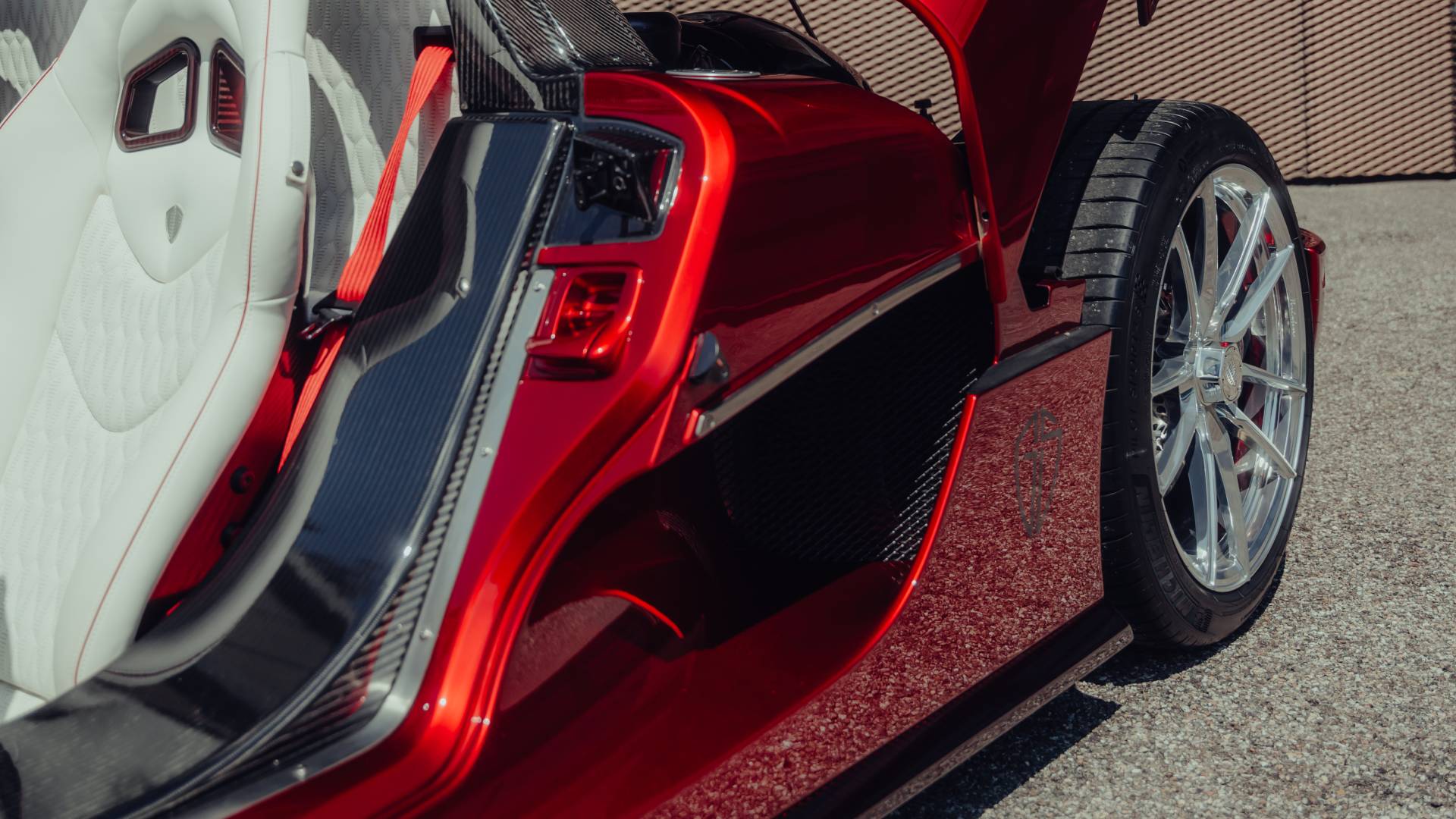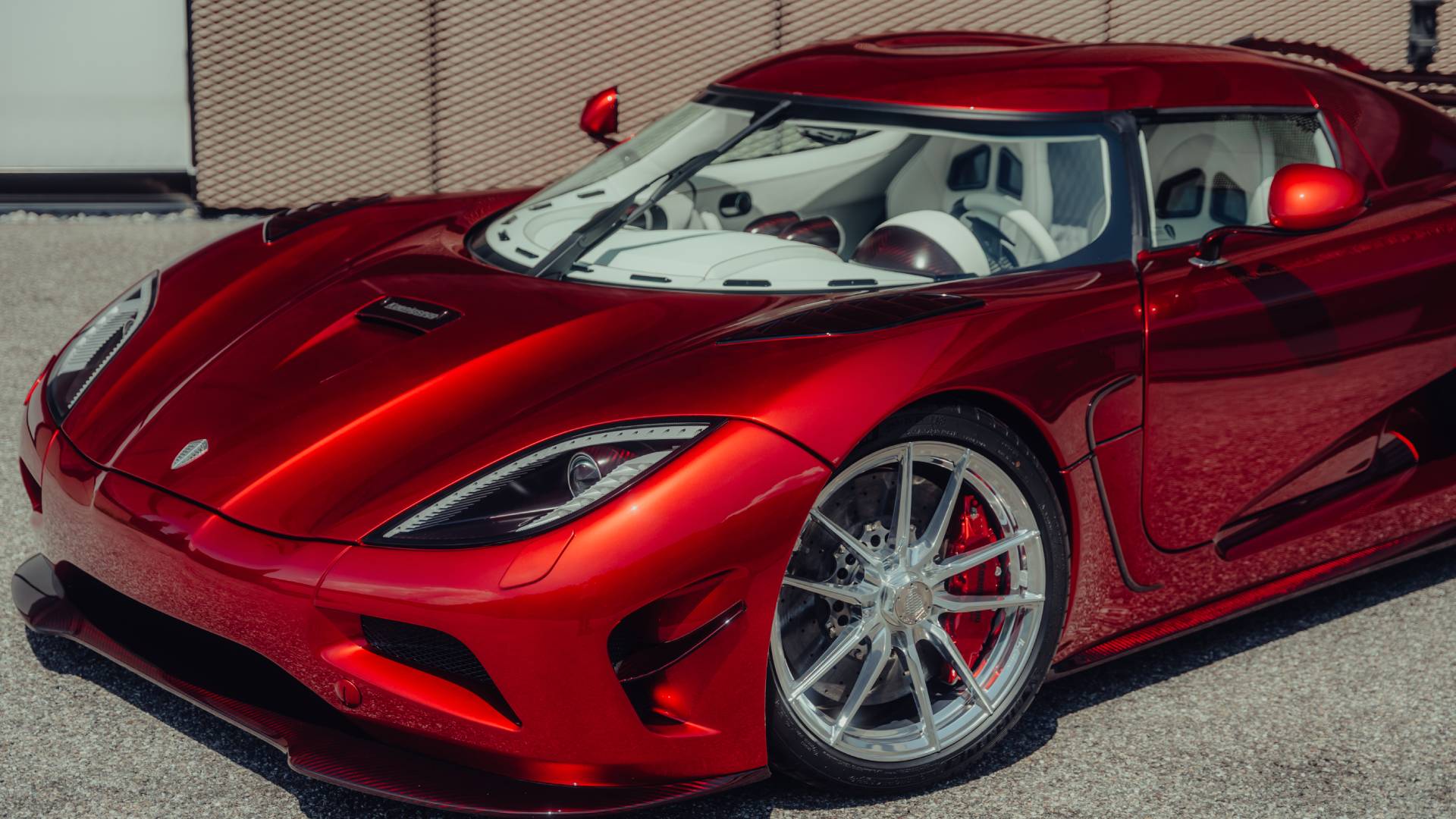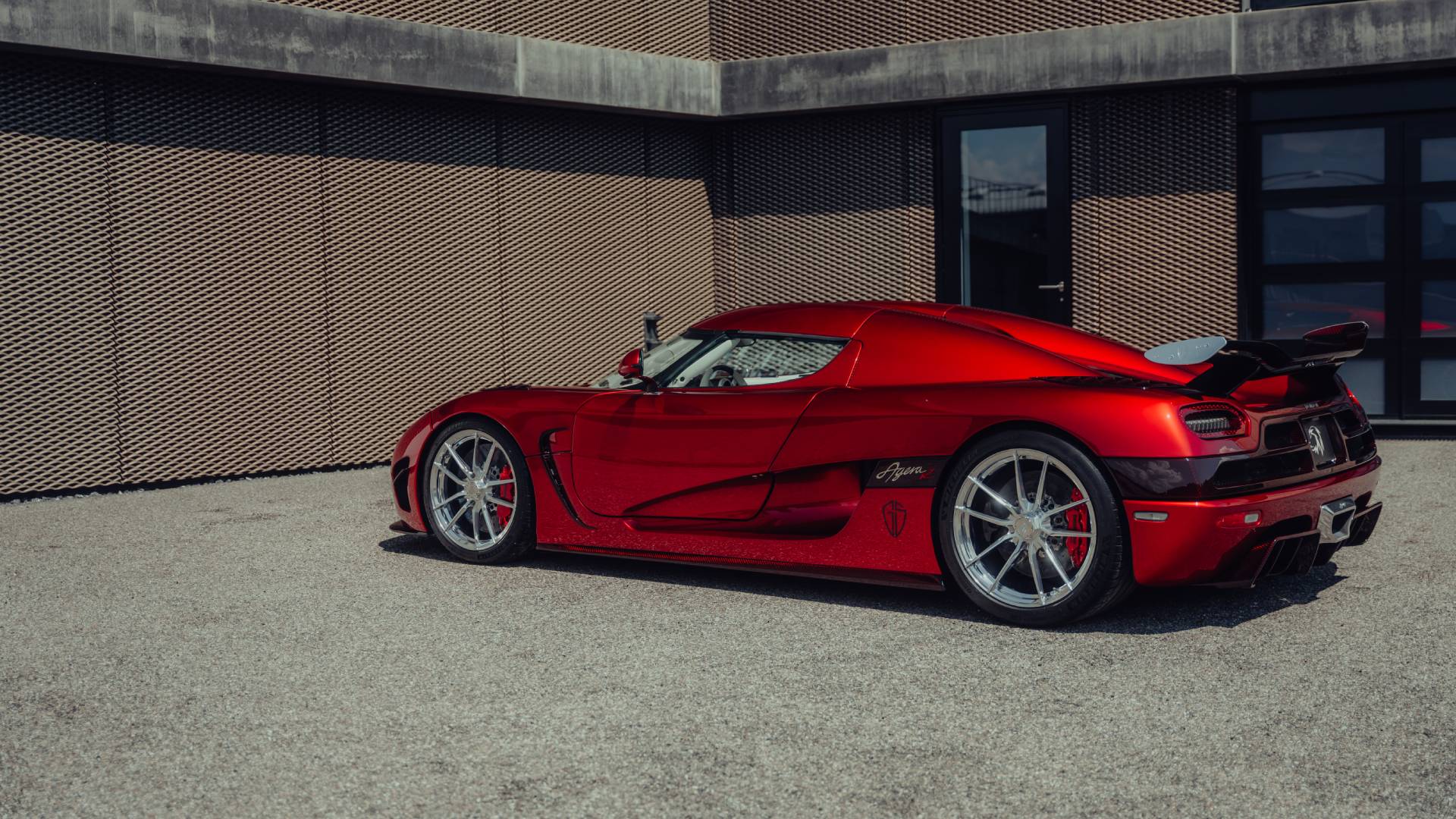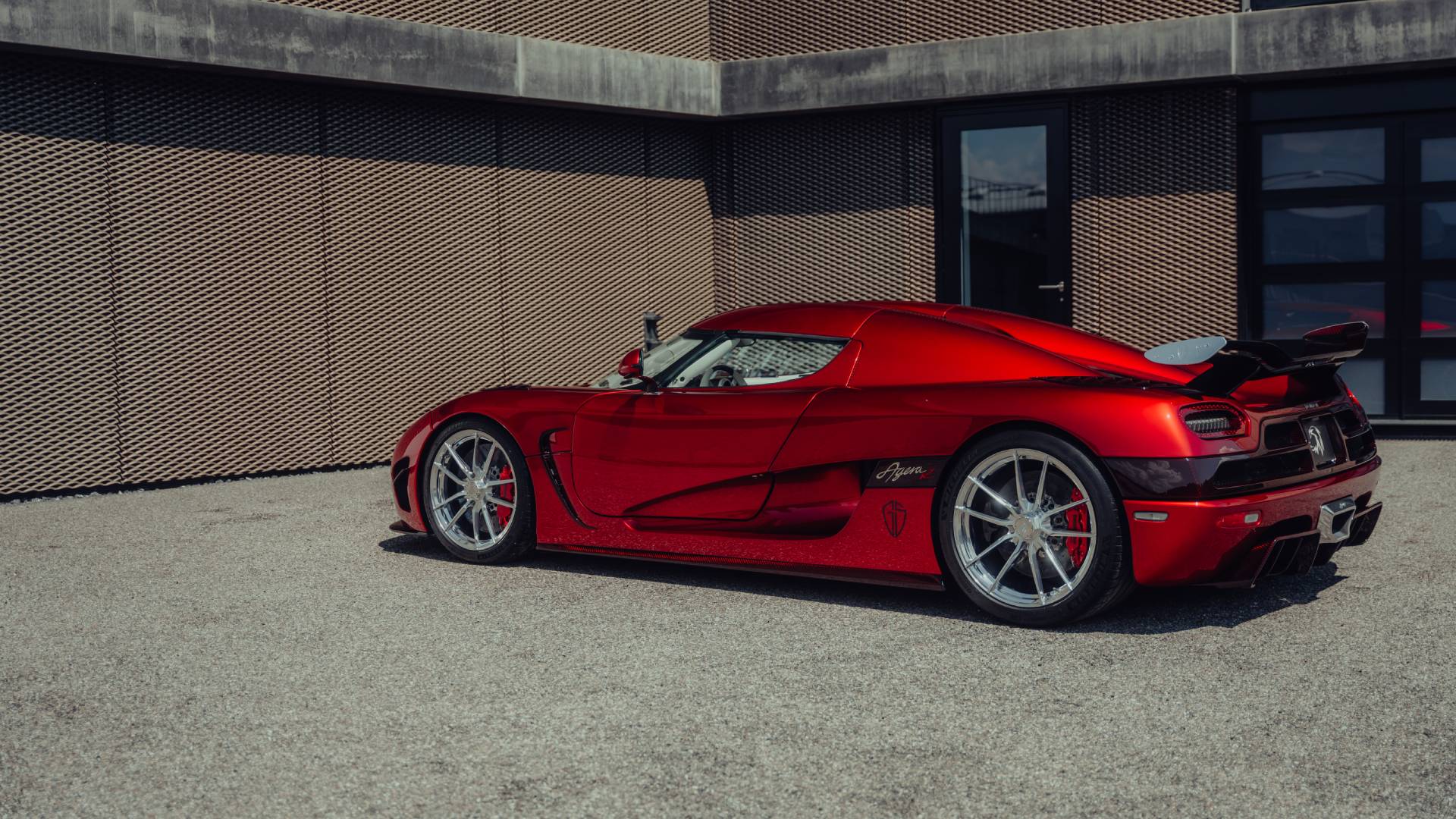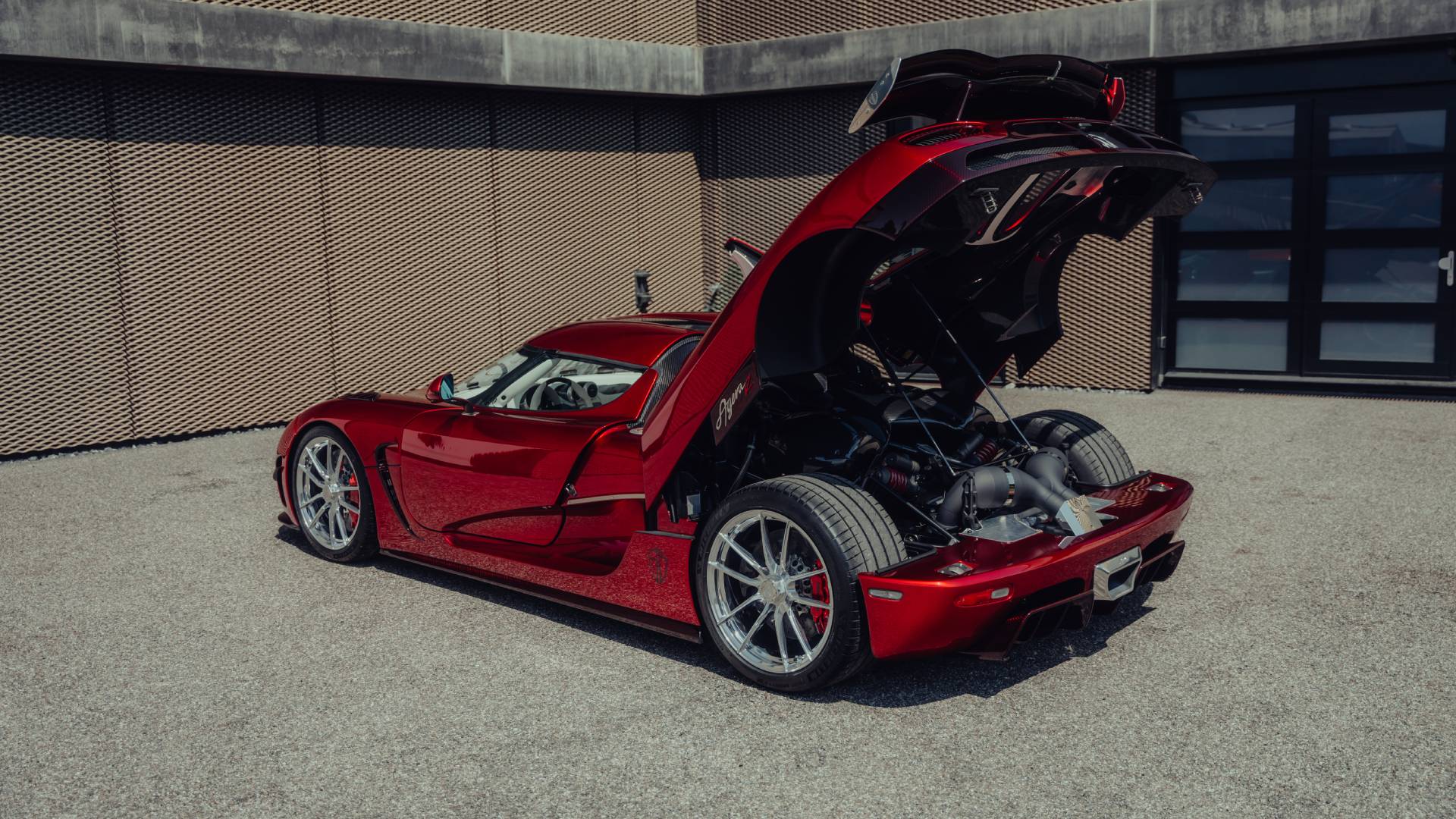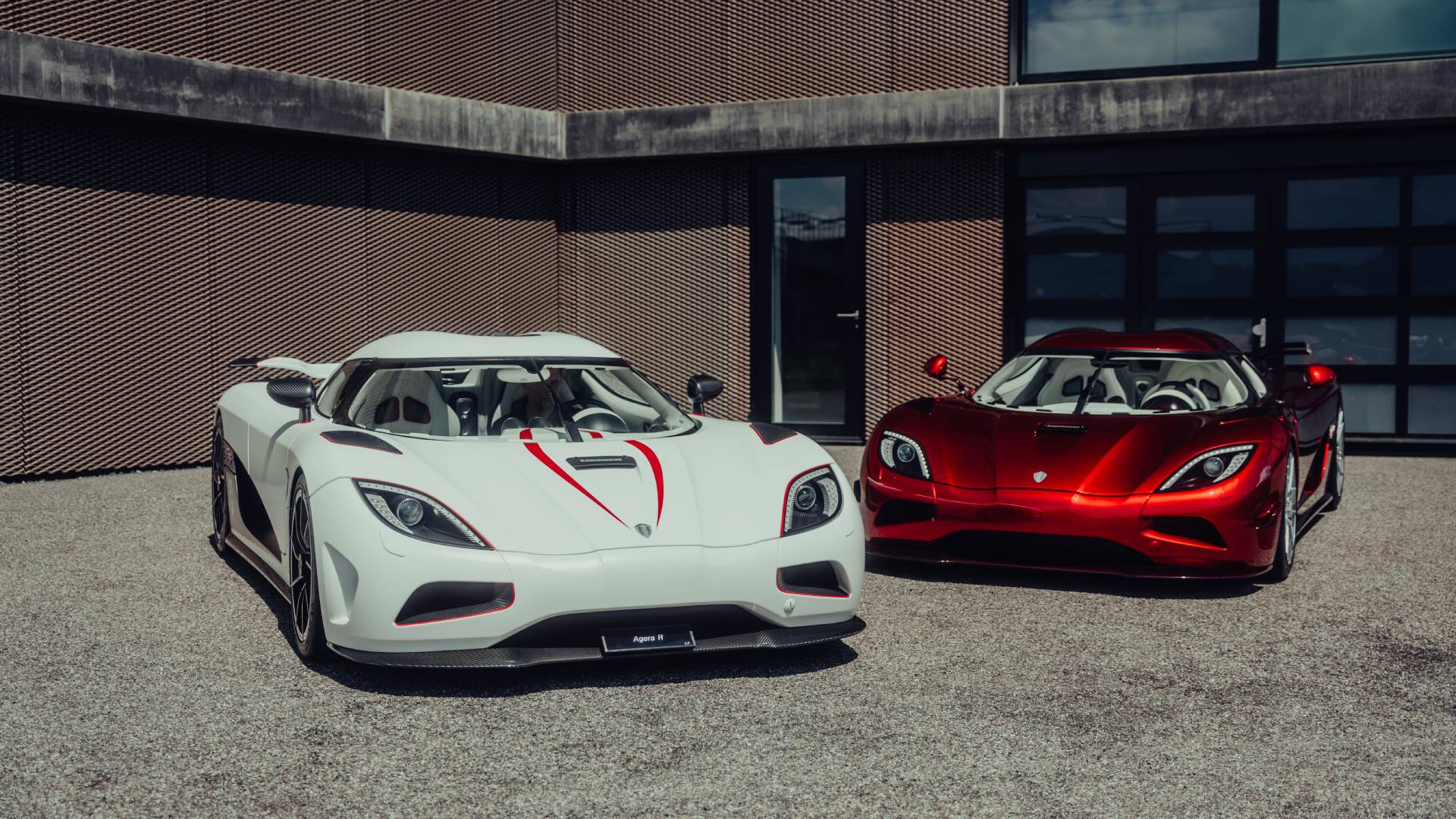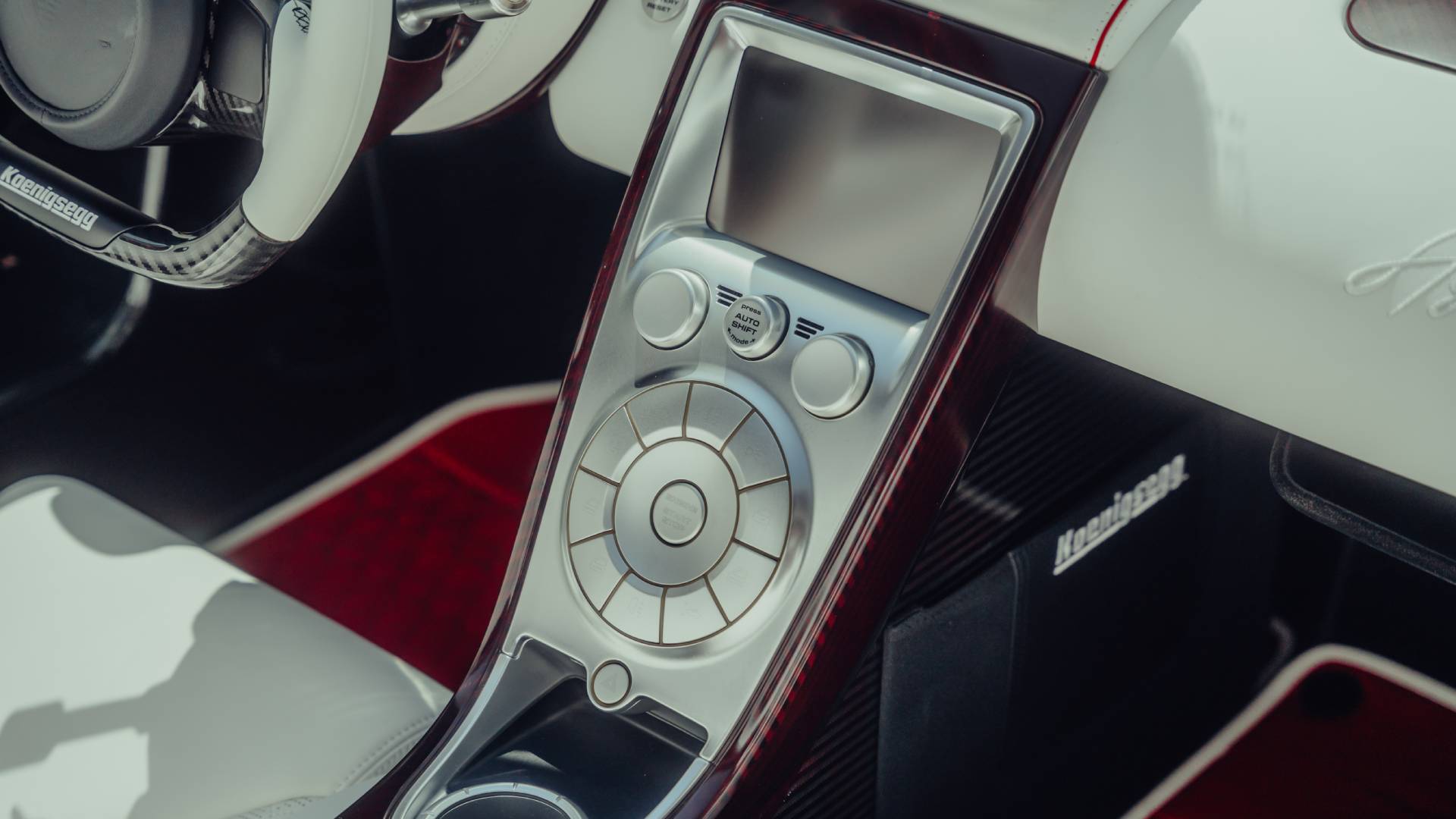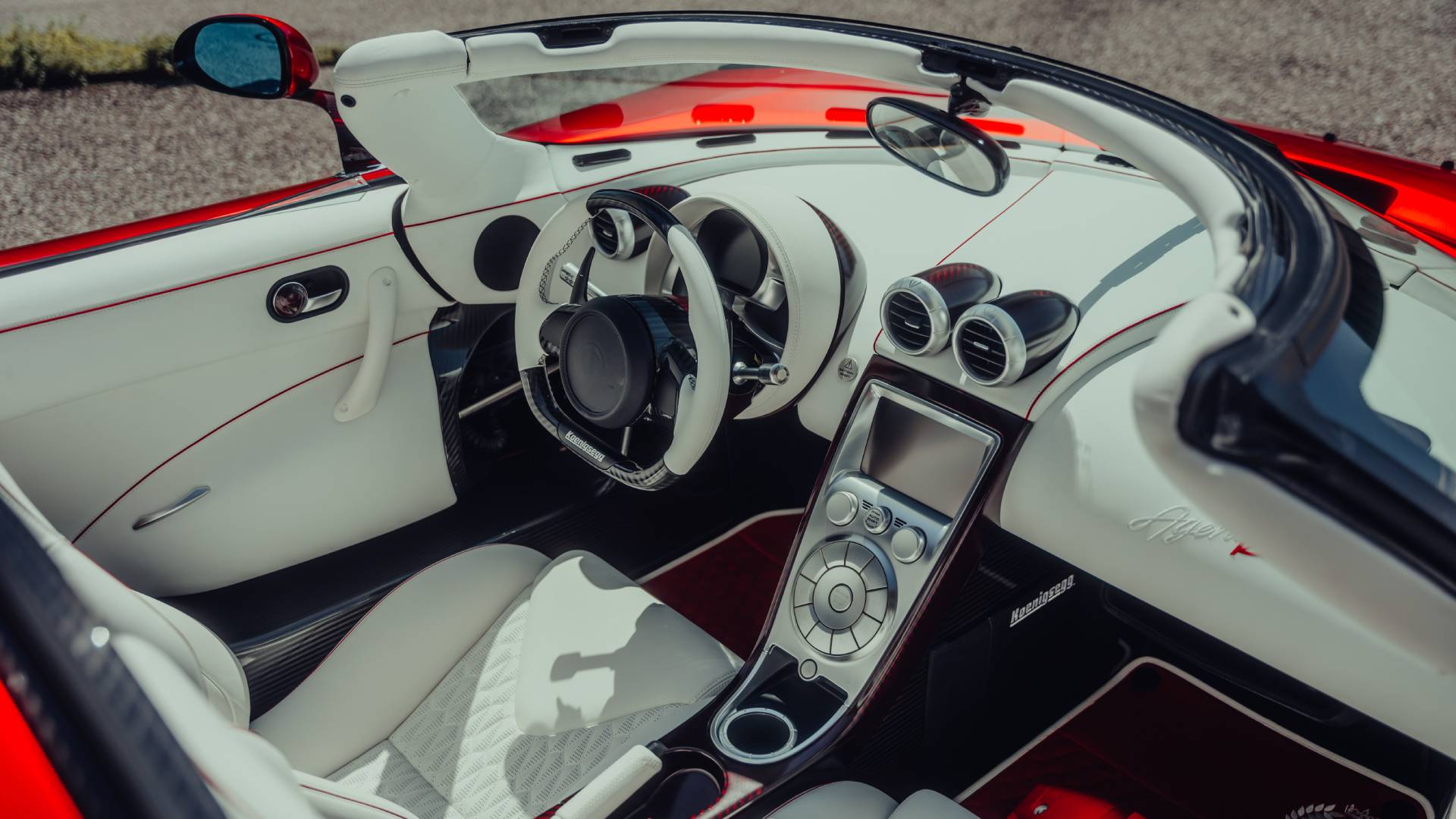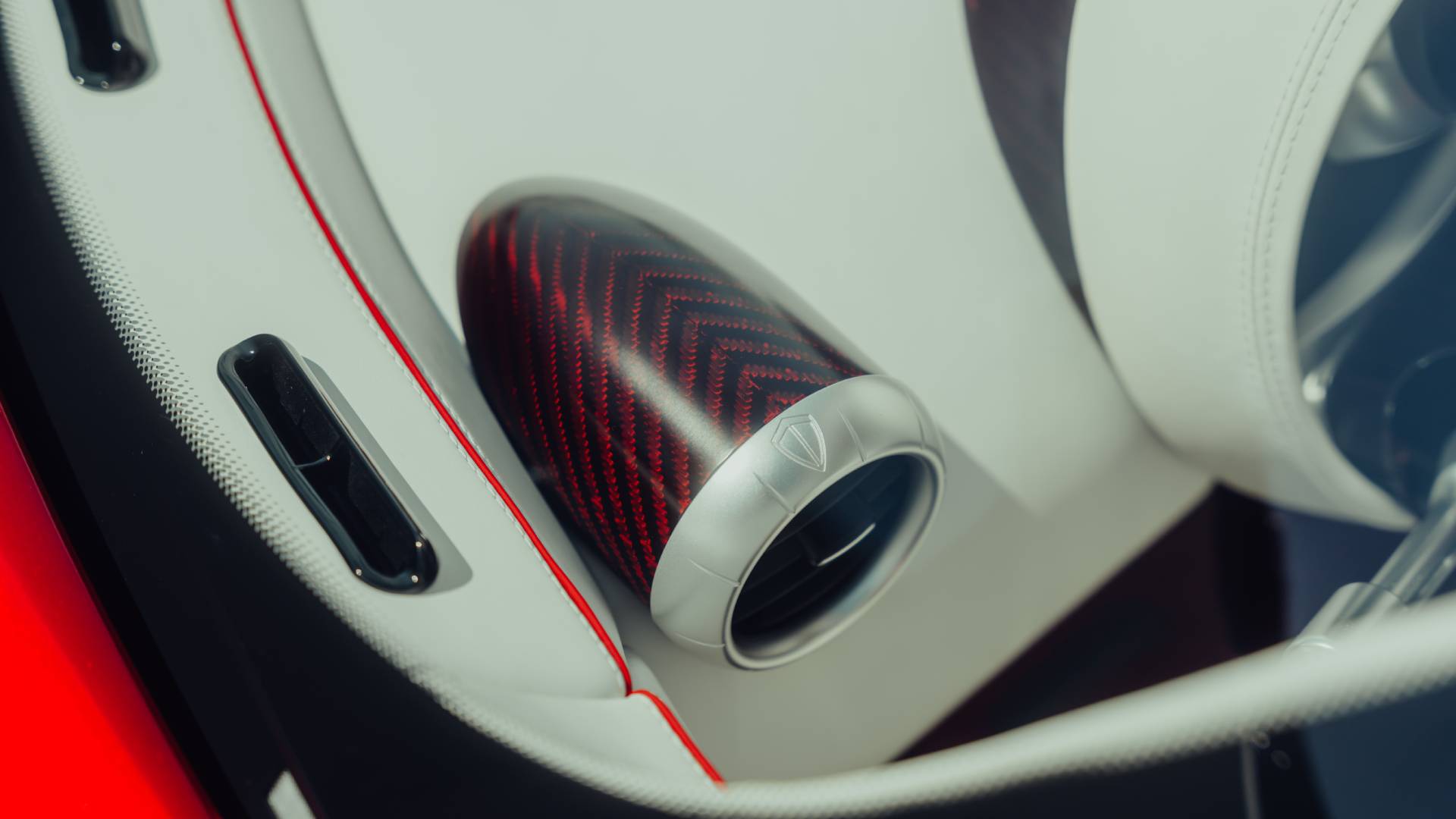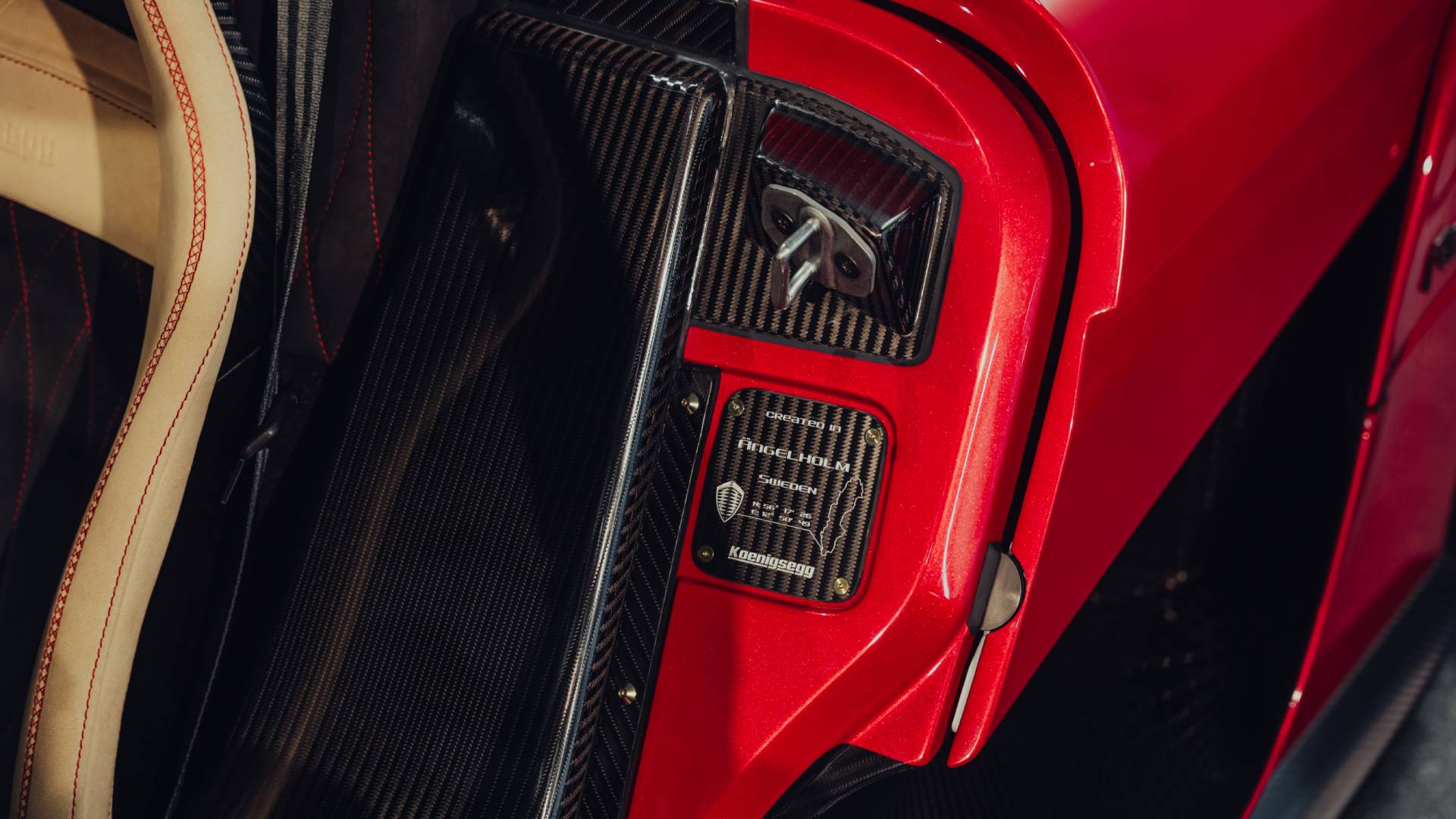Agera means “action” in Swedish and is also an abbreviation of Ageratos, ancient Greek for “timeless” – both terms are perfectly suited to this incredible and beautiful machine.
The Agera features a unique 7-speed gearbox with e-differential and wet clutch, developed in-house at Koenigsegg. This system significantly improves performance and handling.
The car is also equipped with a new interior that includes the now famous “Ghost” lighting system – characterized by laser-engraved, nearly invisible nano-holes in the aluminum panels and buttons.
The Agera was the first model to feature the Koenigsegg developed Vortex Generating Rims (VGR). They acted as air turbines to draw air in to improve brake cooling, and assisted with increasing the downforce of the car significantly. Given that the offset and width are different from front to rear, all four wheels are individually designed so that turbine blades always face the correct direction for extraction. The VGR wheels are forged and then machined to their final shape (excess material is removed during this process) thus minimizing weight whilst featuring outstanding stiffness.
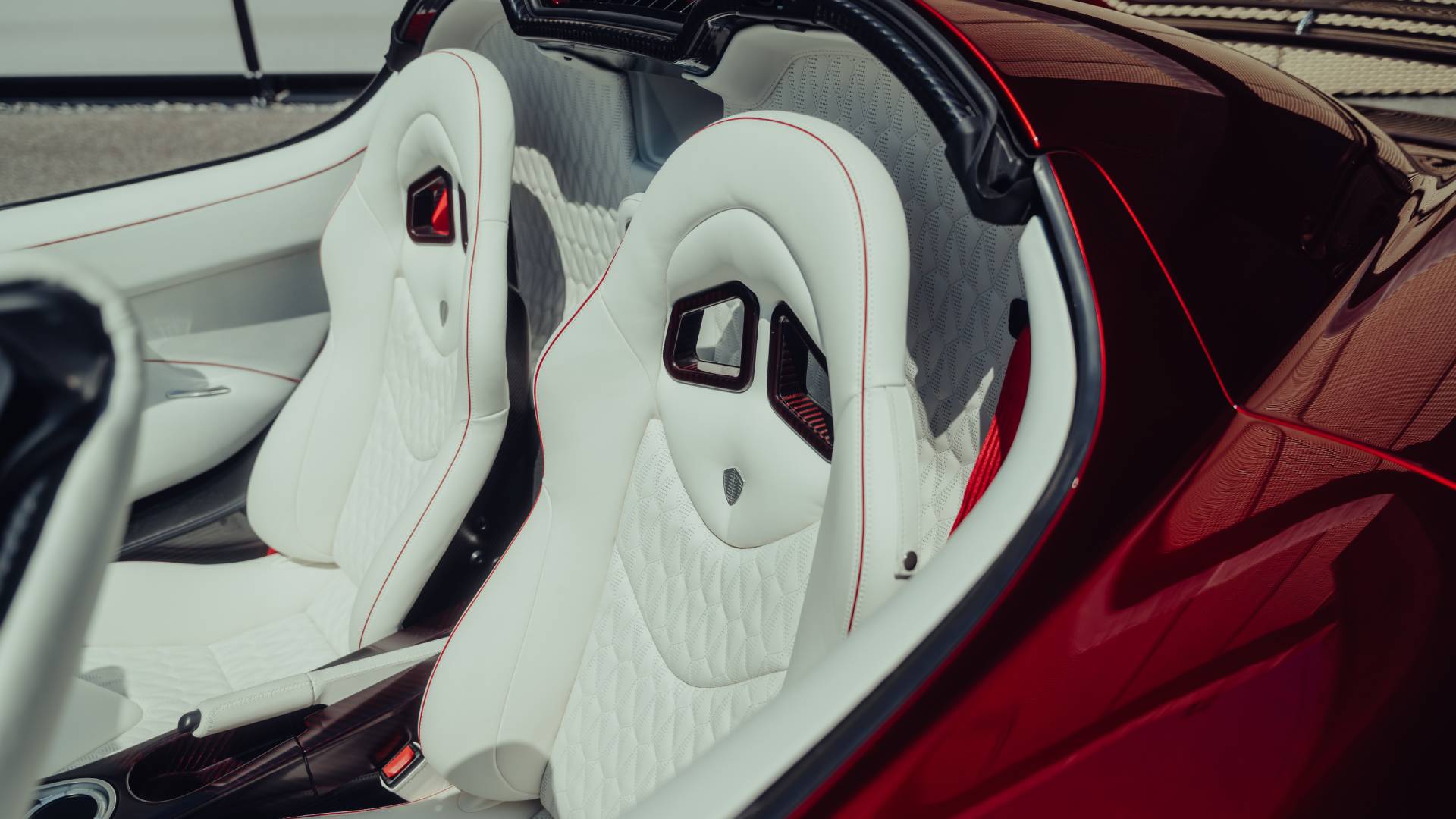
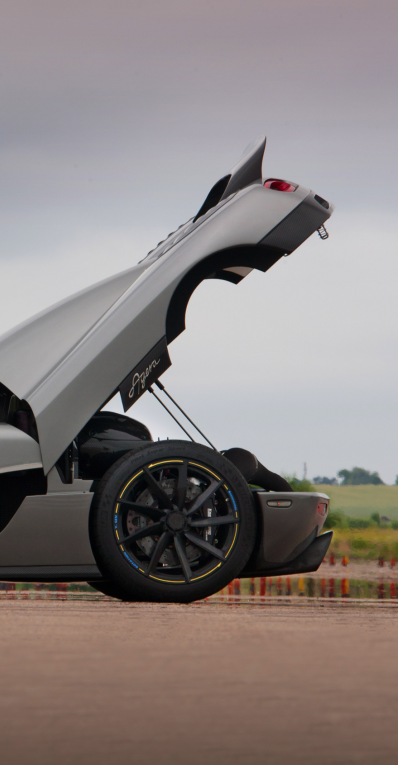
Turbo technology had made great strides since the CCX and CCXR, with the problem of turbo lag disappearing with good design. However, turbo engines with exhaust control had catalytic converters that created a lot of back pressure at high power levels. This back pressure was routed through the turbo to the engine’s exhaust ports, resulting in hot EGR – a source of knocking noises. To solve this, Koenigsegg placed the pre-catalytic converter behind the wastegate instead of behind the turbo, which reduced the backpressure by a factor of 3. This solution added 300 hp – a worthy successor to the Rocket Cat that Christian had invented 10 years earlier. This meant that the Agera could deliver competitive torque, power and response at a fraction of the weight of larger engines.
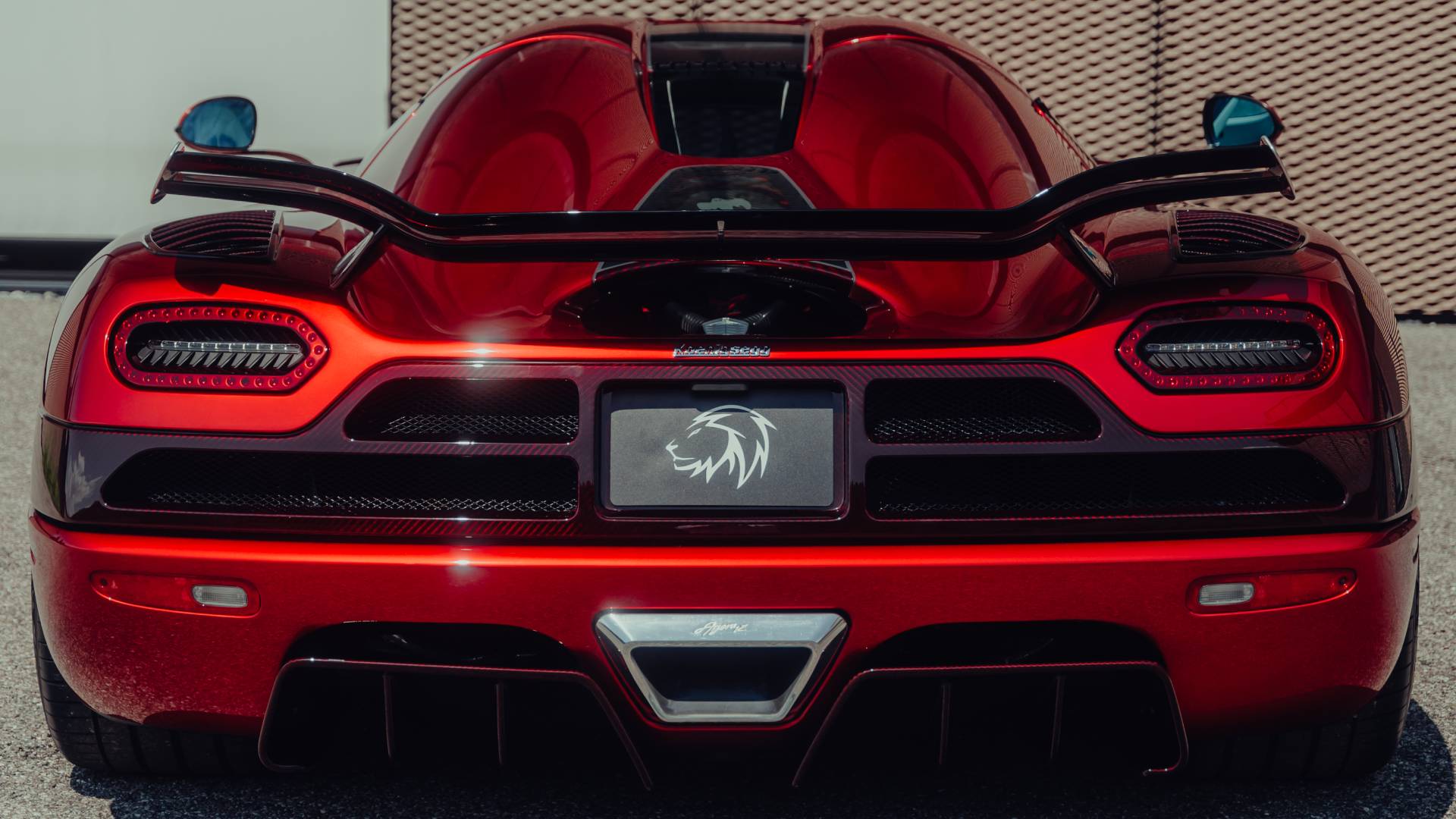
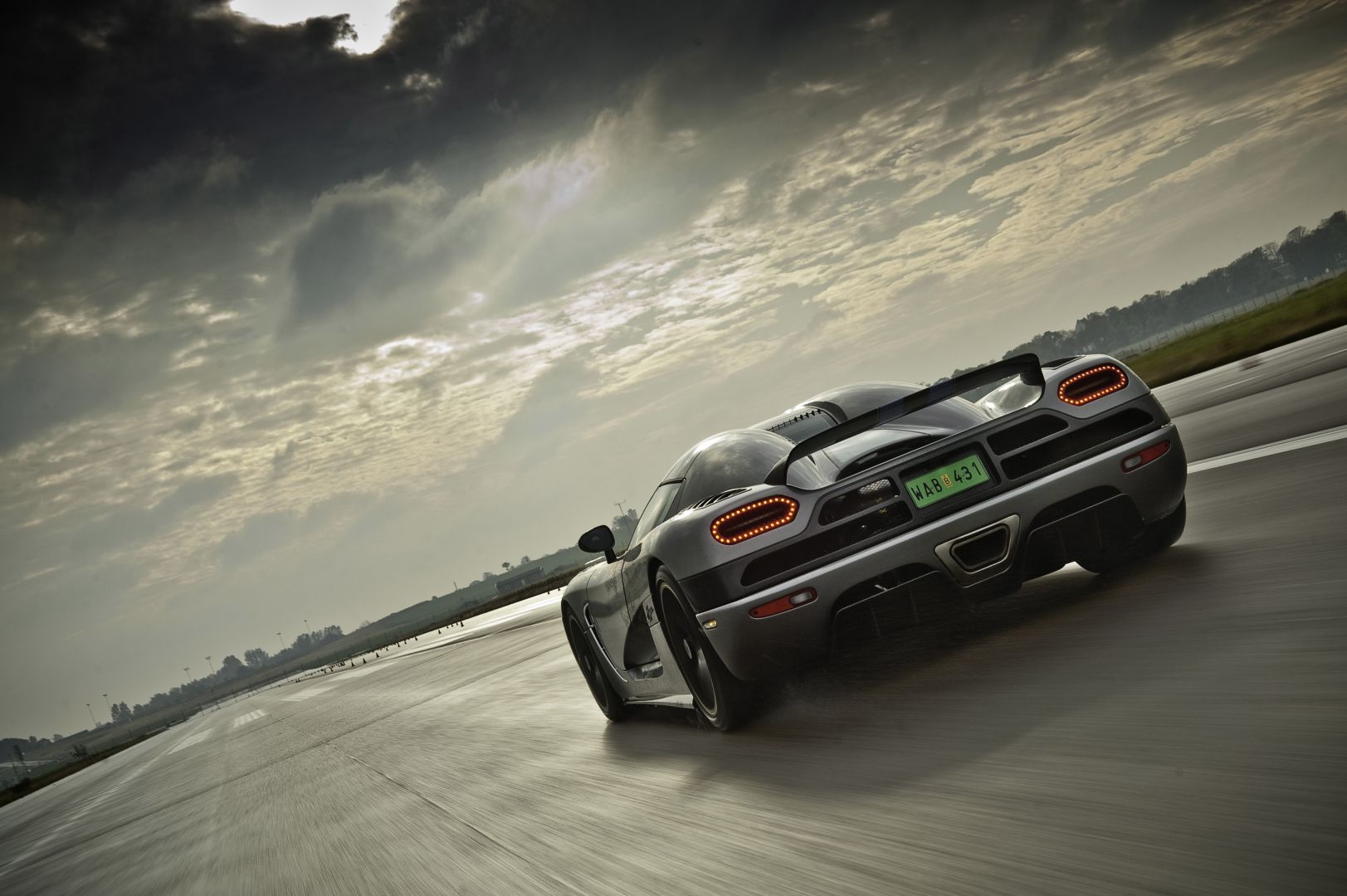
The Agera’s 7-speed automatic transmission was developed jointly with CIMA. Its primary shift function corresponds to that of a single-clutch transmission, but has a secondary, smaller wet clutch. The advantage is that it works like a single clutch transmission but has shift times like a dual clutch transmission. The result is a system that is smaller, more compact and lighter than a dual-clutch transmission.
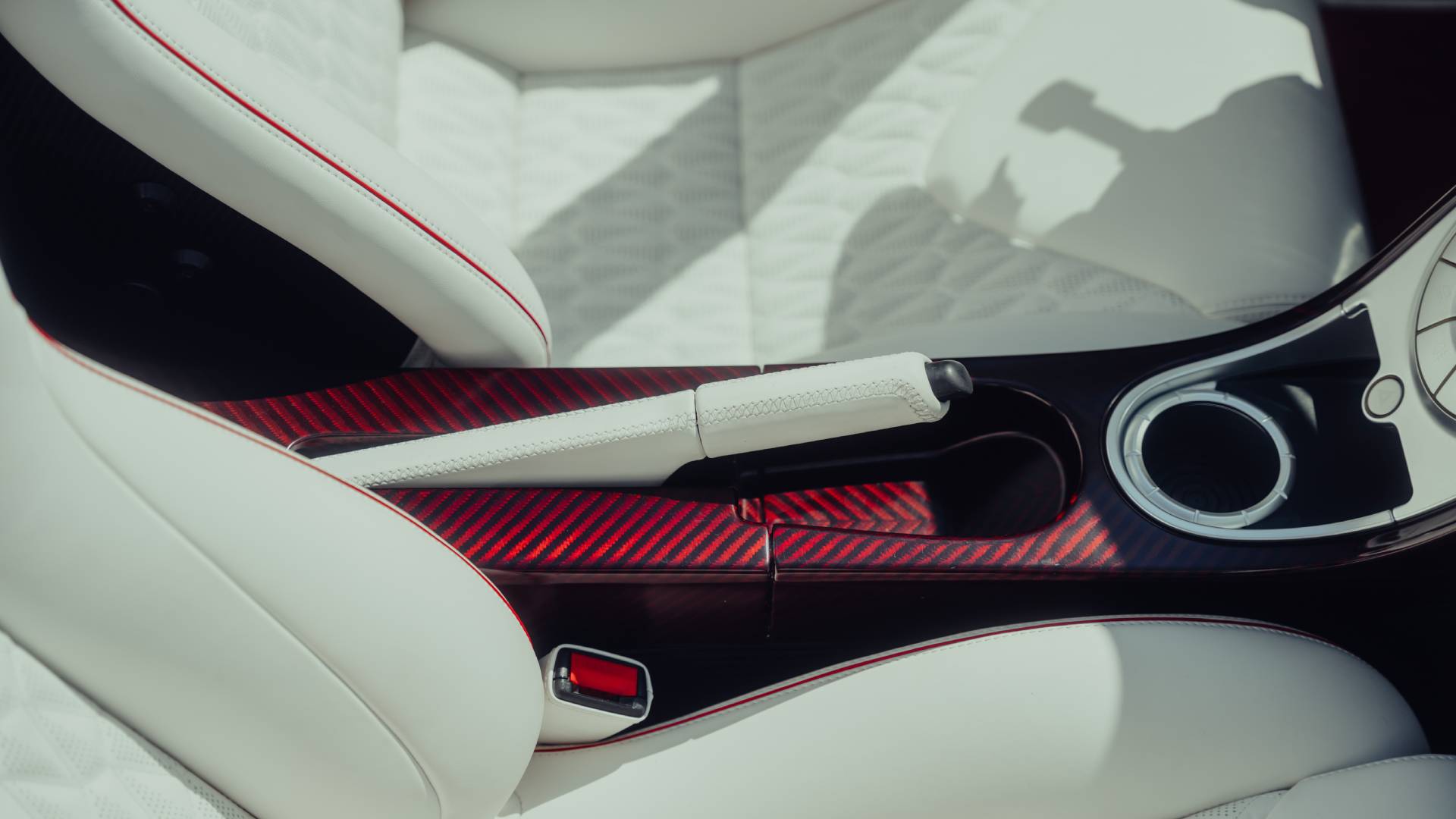
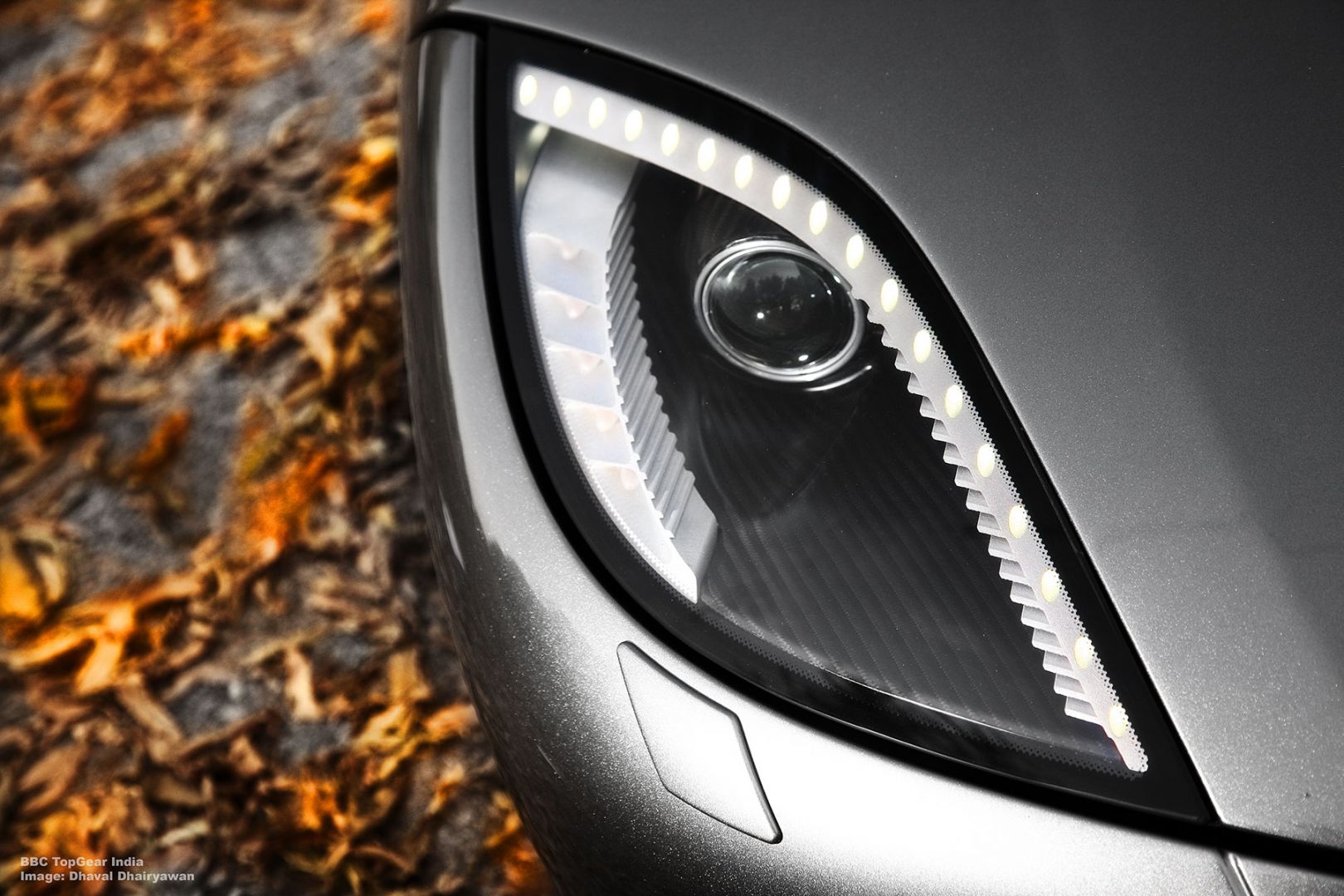

5.0L V8, 960 HP
3,0 s
7-speed, paddle shifters
Carbon, 70 kg
Ceramic, 6-piston front
Adaptive, double wishbone
300 kg at 250 km/h
1.41 kg/hp
420+ km/h
80 L
Carbon/Kevlar
Airbags, ESC
5.0L V8, 960 HP
3,0 s
7-speed, paddle shifters
Carbon, 70 kg
Ceramic, 6-piston front
Adaptive, double wishbone
300 kg at 250 km/h
1.41 kg/hp
420+ km/h
80 L
Carbon/Kevlar
Airbags, ESC
